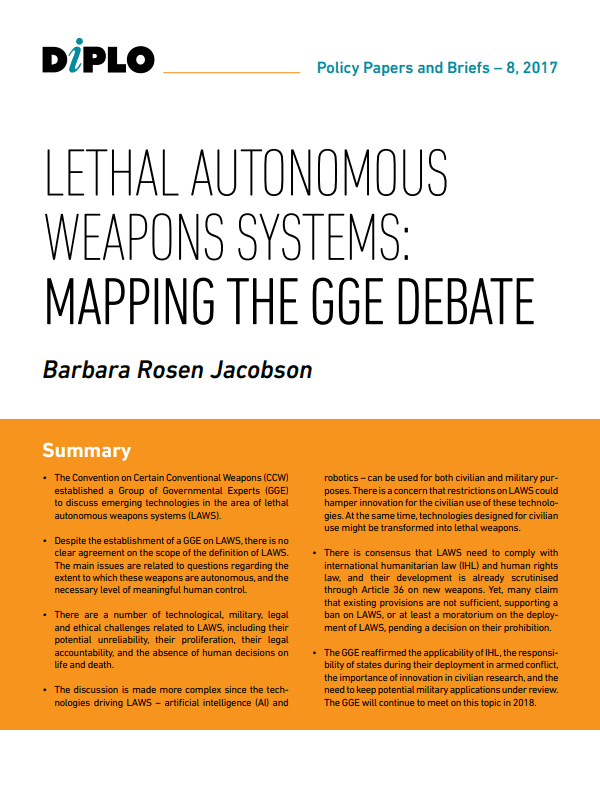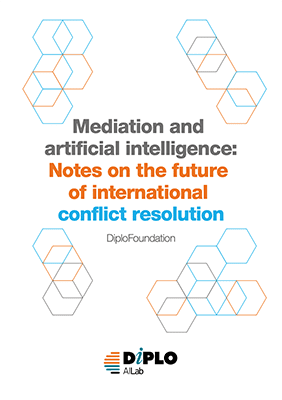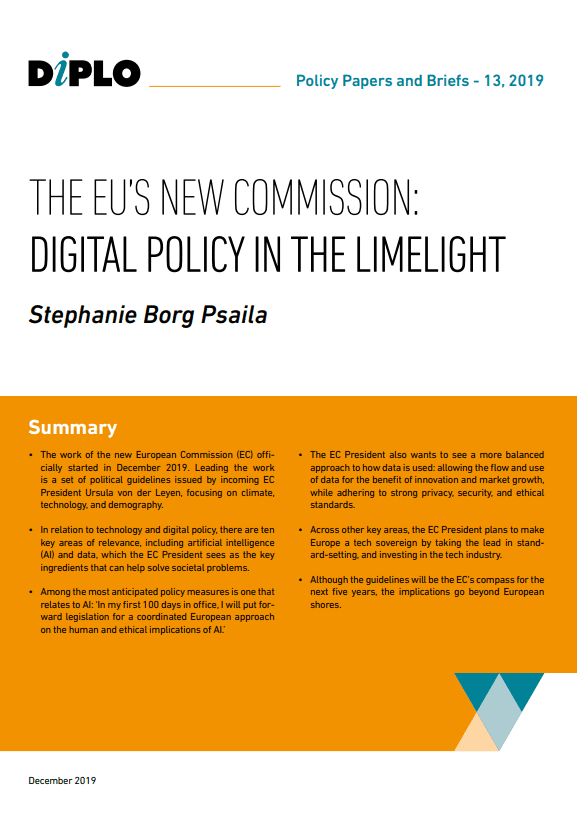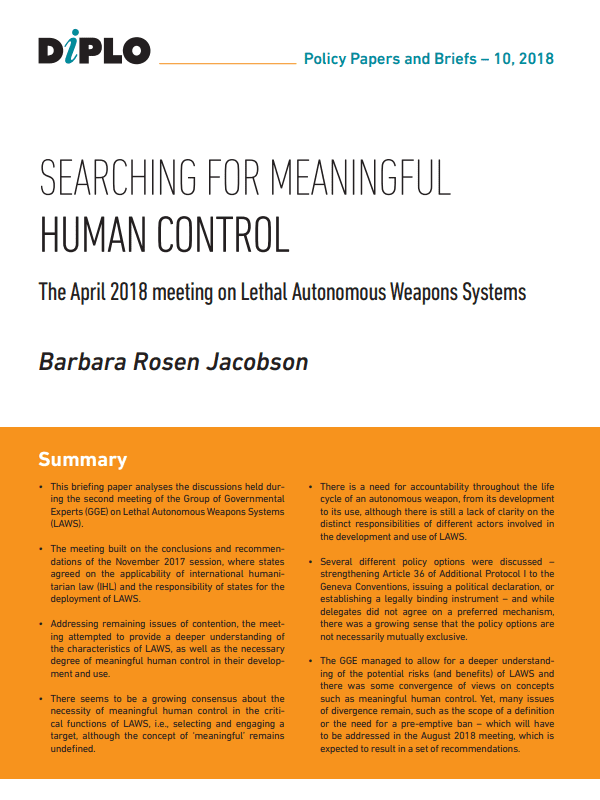EU Council conclusions on EU Digital Diplomacy
2025
EU Council conclusions on EU Digital Diplomacy
26 June 2023
I) INTRODUCTION
1. In an increasingly challenging geopolitical context, aggravated by Russia’s full-scale illegal invasion and war of aggression against Ukraine, the threats to the EU’s human rights-based and human-centric model for digital transformation have become more acute and the importance of the leadership of the EU and its Member States on international digital governance is growing. The development of technologies which have a transformative impact on our economy and society, such as Artificial Intelligence, has accelerated rapidly, while the twin digital and green transitions offer a huge opportunity for sustainable development worldwide.
The Council therefore underlines the need for a stronger, more strategic, coherent and effective EU policy and action in global digital affairs to confirm EU engagement and leadership. This is essential to strengthen the EU’s strategic autonomy, while preserving an open economy. It requires the EU and its Member States to further develop cooperation with partners around the world, bringing together and leveraging all diplomatic and policy tools, and ensuring complementarity and coherence between internal and external policies. To reach those objectives the EU and its Member States need to increase synergies between EU policies and actions, notably in the areas of human rights, cyber, hybrid, and digital.
It also implies seeking synergies with policies and actions on science and research, technology, trade, economic security and supply chains. The Council also highlights the need to promote the digital skills and the engagement of young people, and to strengthen cooperation with civil society stakeholders such as academia, cultural and scientific institutions, as well as the private sector and professional associations.
2. Based on the progress achieved in the implementation of 2022 Council Conclusions1, which spelled out the principles, objectives and tools of EU Digital Diplomacy, built on universal human rights, fundamental freedoms, the rule of law and democratic principles, the Council emphasises the need to enhance the implementation and coherence of all aspects of digital diplomacy by carrying out a set of priority actions.
II) PRIORITY ACTIONS
3. The Council calls on the High Representative, the Commission and Member States to continue to respect, protect and promote human rights, democratic processes and the rule of law online just as we do offline, in particular by fostering digital literacy as well as to advance the human-centric and human rights-based approach to digital technologies, such as Artificial Intelligence, throughout their whole lifecycle.
In this respect, a risk-based approach and human rights due diligence practices, including regular and comprehensive human rights impact assessments, are needed to ensure alignment of design, development and use of digital technologies with applicable human rights standards in line with the vision of digital humanism and preserving human dignity.
In line with the EU Action Plan on Human rights and Democracy, the EU and its Member States will pay particular attention to protecting the rights of those in vulnerable and/or marginalized situations, including women, youth, children, older people and persons with disabilities, continue to address inequalities, such as the digital gender divide and step up action to strongly oppose and combat all forms of discrimination on any ground with a specific attention to multiple and intersecting forms of discrimination, including on grounds of sex, race, ethnic or social origin, religion or belief, political or any other opinion, disability, age, sexual orientation and gender identity.
Priority areas of action will continue to focus on promoting an open, free, neutral, global, interoperable, reliable and secure internet, on the online protection of human rights defenders (HRDs) and the safety of journalists, the fight against Internet shutdowns, online censorship and unlawful online surveillance.
4. The Council calls on the High Representative, the Commission and Member States to further strengthen cooperation in and with relevant multilateral and multistakeholder fora by working in a Team Europe approach, exploring the possibilities of burden-sharing for better coordination on digital issues. To this end, the EU will:
a) Strengthen its capacity to provide substantive and coordinated guidance on digital issues towards Geneva-based organizations such as the International Telecommunication Union (ITU) and World Trade Organization (WTO) and strengthen coordination in other important fora where Team Europe increasingly consolidates its role in digital policy development discussions, including the United Nations, the office of the High Commissioner for Human Rights (OHCHR), UN Special Procedures, UNESCO, the Organization for Economic Co-operation and Development (OECD), the Organization for Security and Co-operation in Europe (OSCE) and Council of Europe (CoE).
In doing so, the EU will ensure close coordination between diplomats on the ground, experts in Brussels and Member State capitals, in order to ensure the implementation of a human-rights based and human centric approach to digitalisation and emerging technologies.
b) Convey joint positions to secure greater impact in the UN-led processes taking place over the next two years, and which will shape the way the digital matters are managed globally, notably the negotiations of the Global Digital Compact (GDC) and close cooperation with the UN Tech Envoy in particular on matters concerning Human Rights and the multistakeholder model of Internet Governance which is open, inclusive and decentralised. The EU contributions to the need to be consistently complemented by outreach with partners of the multistakeholder communities.
c) Strengthen the role of the EU in the International Telecommunication Union (ITU), by clarifying strategic goals, notably in view of the Plenipotentiary Conference in 2026, developing coordinated positions, including, where appropriate, with other partners in the European Conference of Postal and Telecommunications Administrations (CEPT), particularly on telecommunication standardisation, including future generation such as 6G, radio-communication and development, conducting cross-regional outreach and promoting as a strategic objective the ITU’s commitment to achieving universal, meaningful connectivity that respects human rights and fundamental freedoms; and increasing cooperation among EU Member States represented in the ITU Council. The EU should also aim to strengthen coordination in the International Organization for Standardization (ISO) and other standard setting fora to ensure that new technologies develop on the basis of interoperable and/or open standards.
d) Seek coordinated EU positions on candidatures in the elections for strategic positions to relevant international fora.
e) Work with partners in the G7 to reinforce the security of critical digital infrastructures, promote data free flow with trust and boost the resilience of global ICT supply chains; further contribute to G20 goals of sharing technical capabilities with developing countries.
f) Actively engage and make substantive progress towards an ambitious agreement on e commerce in the context of the World Trade Organisation (WTO), including rules on the data free flow with trust; to take an active part, alongside other members, in the WTO’s e-commerce work programme, and to make permanent the moratorium on customs duties on electronic transmissions.
g) Address multilateral issues as an integral part of the Digital Partnerships and other relevant Dialogues with countries around the world in order to build consensus around EU positions and promote key principles underpinning the EU’s own regulatory framework.
h) Develop coordinated positions related to the architecture of Internet governance. Recognising the importance of the issue and critical timeline of the upcoming processes related to Internet governance, the Council invites the High Representative, the Commission (assisted by expert fora such as the High Level Group on Internet Governance), and the Member States – through the relevant preparatory bodies and, where appropriate their delegations– to focus on the following key multistakeholder fora.
This includes active support of the Internet Corporation for Assigned Names and Numbers (ICANN) on issues of strategic importance such as ensuring internet stability, security, and interoperability; enhanced coordination in the World Summit on Information Society (WSIS+20) in 2025; and coordination in order to ensure that an improved Internet Governance Forum (IGF) remain the main global platform for multistakeholder digital dialogue after 2025, in order to maintain support for the open, global, free, interoperable and decentralised internet including in the context of the negotiations for a Global Digital Compact. Opportunities should be further explored to engage with the Freedom Online Coalition (FOC).
5. The Council invites the Commission, the High Representative, and Member States to leverage the web of strategically important bilateral and regional partnerships through enhanced partnership and cooperation: the EU-US and EU-India Trade & Technology Councils; the Digital Partnerships with Japan, the Republic of Korea, Singapore, and future one with Canada, the EU-Latin America and Caribbean Digital Alliance, and to continue identifying and developing new ones, when and where these are strategically relevant.
The pursuit of common digital trade rules with Australia, India, Indonesia, Thailand and possible digital trade negotiations with the Republic of Korea and Singapore, as well as the negotiation on commitments on cross-border data flows with Japan are key elements of the EU’s effort to promote data free flow with trust. By fully exploiting the potential of these partnerships, the EU can position itself as a leader and partner of choice in global technological development, standardisation and governance and secure deployment of critical and emerging technologies such as semiconductors, artificial intelligence, 5G and 6G, subsea data cables, online platforms and quantum technologies.
6. The Council welcomes the progress realised in the EU-US Trade and Technology Council on standards for the development and use of critical and emerging technologies. As stated at the fourth Ministerial meeting in Luleå, Sweden, given the rapid pace of technological developments, the EU and the US are committed to deepening their cooperation on technology issues, including on AI, 6G, online platforms and quantum.
7. The EU stands ready to step up its engagement and cooperation to address common challenges by making our offer more attractive and relevant to our partners’ needs. This implies addressing digital divides, promoting and providing cyber-secure digital public infrastructure, as well as digital commons which contribute to increasing the usability of new technologies and data for the benefit of a society as a whole, offering trusted and secure international connectivity, such as subsea and terrestrial cables, or wireless networks, and taking into account ICT supply chain security as an important element of building a resilient digital ecosystem2.
With Global Gateway, the EU has the means to provide a competitive offer of state-of-the-art digital infrastructure investments combined with the strategic promotion of our technological solutions and standards, with a regulatory and legislative dialogue to make the most of the digital transformation while addressing its risks.
Along with capacity-building and targeted regulatory assistance in key areas, such as cybersecurity, platforms, data, AI and digital identity, the EU should promote human-rights-based and human-centric digital transformation. The Digital for Development (D4D) Hub is a good example of the Team Europe approach to digital cooperation with partner regions globally.
The Council welcomes the digital economy packages announced with Nigeria, Democratic Republic of Congo and Colombia, as well as the Global Gateway digital initiatives, and calls on the High Representative, the Commission, Member States, and financial institutions to work in a Team Europe approach to expand the number of Global Gateway digital projects3.
In particular, it calls on the European Investment Bank to consider enhancing its portfolio of secure digital connectivity investments, including in mobile networks and subsea cables, going forward and invites the Commission to continue the work on developing coordination of export credit facilities for connectivity projects, including together with similar financing instruments of like-minded partners.
8. The Council stresses the importance of strengthening cooperation in tackling foreign information manipulation and interference (FIMI), including disinformation, by foreign threat actors, particularly the Russian Federation, including in the context of its war of aggression against Ukraine in the digital space and underlines the importance of stepping up work within the EU, as well as with partners, third countries and other stakeholders, notably online platforms.
9. The Council calls on the High Representative, the Commission, Member States, and financial institutions to strengthen mutual resilience by enhancing digital capacity building and cooperation, notably through the Economic and Investment Plans with partners in the Western Balkans and the Eastern Partnership, in particular with those partners with an EU membership perspective, as well as in the Southern Neighbourhood region, and in line with the Digital Agenda for Western Balkans, the Eastern Partnership’s EU4Digital Initiative, and the New Agenda for the Mediterranean.
10. The digital transformation of Ukraine has been a key element of the resilience of its economy and society in its defence against Russian aggression and will be a key pillar of its reconstruction. The Council underlines the need to foster resilience of Ukraine’s ICT ecosystem, and reiterates the EU’s unwavering support to Ukraine for as long as it takes.
11. In line with the commitments made at the 2022 EU-AU Summit, the Council calls on the High Representative, the Commission, and Member States to enhance digital capacity building and cooperation with Africa, as well as to ensure that EU investment in secure digital infrastructure in Africa is coordinated, so that capacity building and support for the development of appropriate policy and regulatory frameworks is prepared in cooperation with the African Union and partners such as Smart Africa, so as to bring an enhanced level of continent-wide partnership that is in accordance with the importance of the relationship between the EU and Africa.
12. The Council calls for the informal EU Digital Diplomacy Network to continue to engage in strategic discussions on key emerging and challenging issues of tech and digital policy and regularly to convene in enlarged format, bringing in, as appropriate, other European and like minded partners, as well as other stakeholders and relevant networks, and to further strengthen its coordination with the EU Cyber Ambassadors’ Network.
13. With a view to ensuring a coordinated approach and effective positive outreach on digital matters, the Council invites the High Representative, the Commission and Member States to promote the establishment of informal digital hubs in key partner countries, where EU Delegations and Member States’ Diplomatic representations work closely together in a systematic and coordinated manner, and engage in information sharing and action on cross cutting issues with relation to digital and technological development. In order effectively to use those networks, both the EU and Member States should prioritise digital diplomacy resources abroad, continue to reinforce capacity-building and enhance EU coordination on digital matters.
14. Recognising the important role the tech sector can play in the support of the EU’s Digital Diplomacy objectives, the Council calls on the High Representative, the Commission, and Member States to explore avenues for coordinated dialogue and structured cooperation with the tech industry in key strategic areas, including critical and emerging technologies and secure connectivity, to strengthen the EU’s shared approach, as well as its innovation and industrial growth, and promote European standards, regulatory approaches and trusted vendors globally.
The efforts should seek to find common ground and aligned strategic visions based on shared values and interests in the intersection of technology development, standardisation, and geopolitics that benefit both the EU and the industry. This should be done including through using the Business Advisory Group set up to ensure private sector involvement in the implementation of the Global Gateway, as well as other frameworks of industrial dialogue on digital such as the Trade & Technology Councils, Digital Partnerships, Dialogues and Alliances, as well as within key standardisation bodies. The experience gained through the engagement of the EU Office in San Francisco with the tech sector should be used.
15. The Council underlines that, in order to play a role in shaping digital geopolitics, the EU and its Member States need to scale up their capacities on digital diplomacy including through better cooperation on training and information-sharing tools, addressed to EU and Member States diplomats, looking for synergies and sharing best practices between the EU, Member States, academia, private sector, civil society and other relevant stakeholders. The Council invites the High Representative and the Commission to ensure within two years that at least one official in every EU Delegation has relevant expertise on digital diplomacy matters and that diplomats posted in EU Delegations receive relevant training as part of their pre-posting process.
16. The Council will revert to this issue by summer 2024 and invites the High Representative, the Commission, and Member States regularly to assess progress and to continue regularly to report to the Council on digital diplomacy implementation.
References:
1 Council Conclusions on EU Digital Diplomacy, 18 July 2022
2 See: Council Conclusions on Information and Communication Technologies Supply Chain Security (12930/22)
3 See list of 2023 flagship Global Gateway projects https://international partnerships.ec.europa.eu/publications/global-gateway-2023-flagship-projects infographics_en






